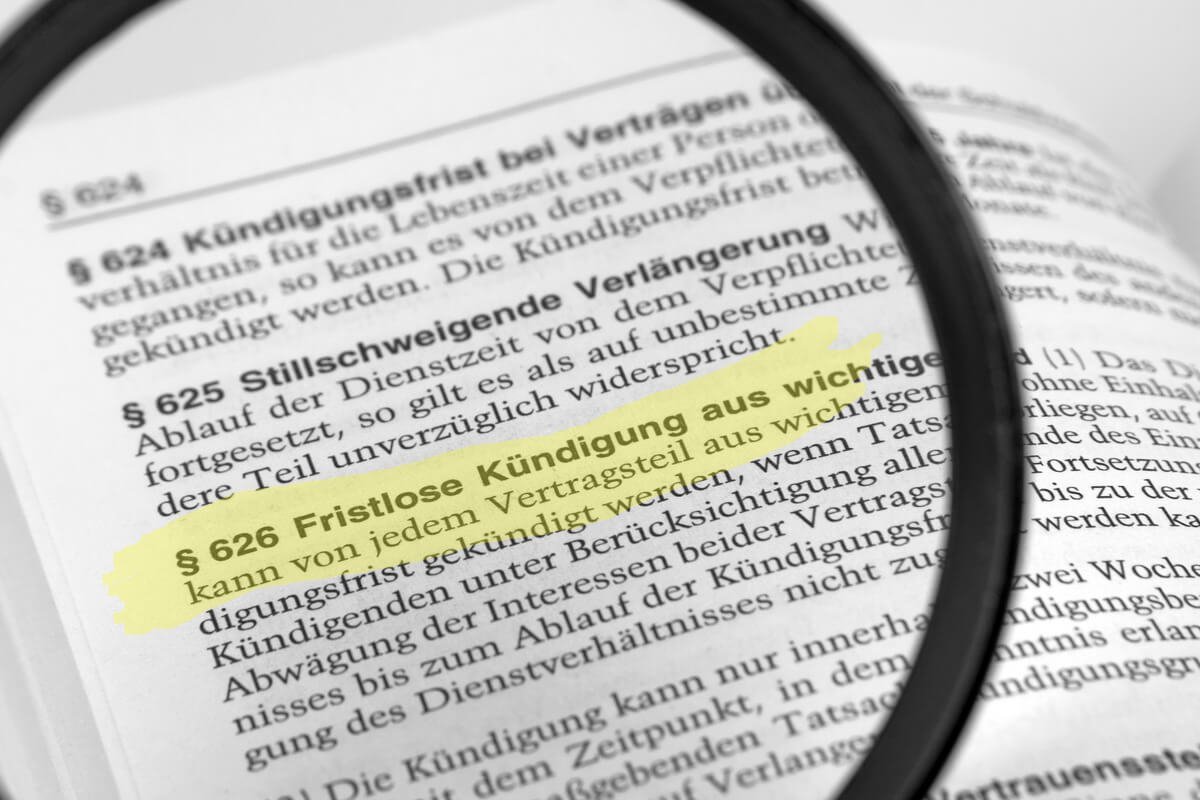

German employment references often hide subtle evaluations and “grades” in the wording. Phrases like “always,” “consistently,” or “to the fullest satisfaction” signal formal ratings. While most references in Germany are positive, over 80 % read “very good” or “good,” some wording may secretly reflect criticism. This guide highlights ten common phrases that appear positive but may be interpreted negatively by experienced HR professionals, helping you identify hidden critiques and protect your career prospects.
Calculate your severance payment
Calculate the settlement amount for your individual case in 2 minutes
Key takeaways
- Reference letter wording in Germany can contain hidden evaluations; know which phrases suggest criticism.
- Simple references cover personal data, job description, and a brief performance rating; qualified references add detailed assessments including skills, behavior, and achievements.
- Avoid negative or illegal content such as mention of illness, disciplinary warnings, or ironic remarks in a reference.
- Properly issued references must be printed on official company paper, free of errors, and signed by an authorized person.
- Understanding these subtle cues helps employees challenge unfavorable wording and request corrections if necessary.
Contents
What should a reference letter contain?
Reference letters in Germany come in two main forms: simple and qualified. A simple reference includes personal details, a brief activity description, and a conclusion. It is often used for short-term employment or internships. A qualified reference is more common and includes a comprehensive assessment of performance, behavior, motivation, competencies, and interactions with colleagues, managers, and clients.
Simple reference
A simple job reference in Germany (einfaches Zeugnis) contains personal details, a job description, an evaluation of the performance and a closing formula. So it’s rather short. In the case of very short employment relationships or internships, employers are reluctant to write longer references. Therefore, in such cases, they often only create a simple certificate.
Qualified reference
A qualified reference (qualifiziertes Arbeitszeugnis) is usual (and usually better). The qualified job reference also contains a comprehensive assessment, e.g. of the social skills of the employee. It usually includes the following parts, which should also be included in the appropriate order:
- Address of employer and description of employee.
- Career of the employee in the company and complete, concrete description of all activities.
- Evaluation of performance and behavior, including motivation, ability, expertise, work style and particular achievements of the employee. As well as dealing with superiors, colleagues and customers.
- A school grade can be deduced from a summary assessment.
- The termination formula explains which side terminated the employment relationship. The employee leaves, for example, at his own request, by mutual agreement (termination agreement) or he was dismissed for operational reasons.
- The job reference ends with a “thank you” and best wishes (“All the best for the future” should be sufficient according to case law)
Formal requirements
A job reference should be in writing and printed on company paper in a uniform font. Therefore, a work reference sent as an e-mail alone is not sufficient. Of course, the certificate must be free of “formal errors” such as stains, misspellings, corrections, insertions, or erasures. It must contain the place and date of issue and the signature of the employer or an authorized superior.
Until recently, employment references have had to be printed out and signed manually. An electronic version has finally been made legal since 1 January 2025! The signature must be applied using a qualified electronic signature, and the recipient of the certificate must consent to the electronic format.
Free initial consultation with a lawyer
Quick callback after 1 to 2 hours for a free initial consultation with a lawyer
What should a reference letter not contain?
A reference must not include disciplinary actions, absences, illness, union membership, or reasons for dismissal. Irony, sarcasm, or suggestions that future employers may inquire separately are forbidden. Such content may signal hidden criticism or legal non-compliance.
Key message: Always review a draft carefully; small nuances in phrasing can alter the perceived meaning significantly.
Interpreting reference letter wording
“Zeugnisdeutsch” (reference letter language) often encodes ratings:
- “… stets zur vollsten Zufriedenheit” → Grade 1 (very good)
- “… zur vollsten/stets zur vollen Zufriedenheit” → Grade 2 (good)
- “… zur vollen Zufriedenheit” → Grade 3 (satisfactory)
- “… zur Zufriedenheit” → Grade 4 (sufficient)
- “… im Großen und Ganzen zu unserer Zufriedenheit” → Grade 5 (poor)
Examples of Employment Reference Phrases
Here are our “top ten” phrases you might not want to read on your report card:
| # | German in written job reference | Possible interpretation |
| 1 | Sie zeigte stets Verständnis für ihre Arbeit. | She knew her stuff (But was lazy and accomplished nothing). |
| 2 | Sie erledigte alle Aufgaben pflichtbewusst und ordnungsgemäß. | She did her job (However, she lacked initiative). |
| 3 | Sein Verhalten gegenüber Kollegen und Vorgesetzten war stets vorbildlich. | He got along with colleagues (But had problems with his superiors) (superiors mentioned only after the colleagues) |
| 4 | Sie gab klare Ansagen und verstand es, alle Aufgaben stets mit Erfolg zu delegieren. | She gave clear instruction and mastered delegation (However, she avoided work whenever she could). |
| 5 | Er erzielte nicht unerhebliche Verkaufserfolge. | He had some success in sales (But nothing great). |
| 6 | Er war stets ein geschätzter Gesprächspartner. | He was a valued discussion partner (Also talkative and engaged in long private conversations on the clock). |
| 7 | Sie trat sowohl innerhalb als auch außerhalb unseres Unternehmens engagiert für die Interessen der Kolleginnen und Kollegen ein. | She was active in the works council or in the trade union. |
| 8 | Durch ihre Pünktlichkeit war sie ein gutes Beispiel. | She was an example in punctuality (Unfortunately, in nothing else). |
| 9 | Er verfügt über Fachwissen und gesundes Selbstvertrauen. | Knowledge and confidence indicate arrogance |
| 10 | Wir trennten uns am … | May indicate termination without notice |

Calculate severance pay now free of charge
- Calculate potential severance payment amount
- Strategy for negotiating a fair severance payment
- Find suitable lawyers for labour law
How to act on a negative reference
If a reference includes unfavorable or unlawful phrasing, consult a labor lawyer to determine whether you can challenge it or request a correction. In disputes over grades, you may request a simple reference stating only employment type and duration. This is suitable for short-term positions where detailed evaluation may be contested. For key career references, negotiating or legally enforcing a qualified reference is advisable.
Even minor wording changes can affect future job prospects. Keep documented drafts and compare phrases with standard “Zeugnisdeutsch” interpretations.
Frequently asked questions (FAQ)

Free initial consultation with a specialist lawyer
- Free initial consultation with a lawyer
- Quick callback after 1 to 2 hours
- Strategy for negotiating the severance pay




